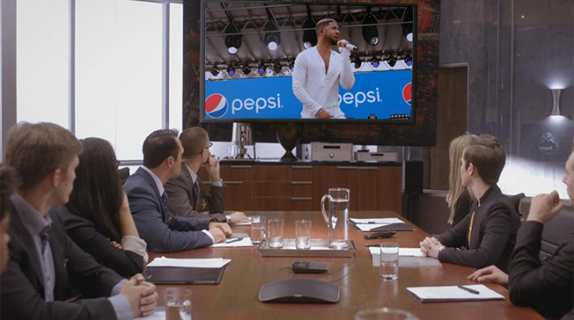Branded integrations in primetime may be waning, but it’s more because opportunities to do branded content are flourishing elsewhere at lower cost and less effort than because brands and TV shows aren’t interested in doing them.
According to Adweek, Nielsen TV Brand Effect, a division of the TV measurement firm that reports on integrations, reports that the number of branded integrations in original primetime series have declined since the 2013-14 TV season, from 4,701 that year to 4,538 last season.
That said, there are still plenty of branded integrations on the air, and moreover, many companies have created their own studios to produce branded content, including NBC, Viacom and Turner. Working with those outfits means less hoops for brands to jump through because branded content doesn’t necessarily have to be woven into a storyline and can live independently on digital platforms.
And in some cases, brands are figuring out different ways to interact with brands, such as NBC’s partnership with American Express. In that example, American Express is sponsoring time on the network, allowing the network to add more content in that time. Some of that additional content will air with an on-screen American Express bug and the show’s anchors will call out American Express for providing the extra time.
RELATED: NBC Tries American Express Sponsorship With ‘Today’
Many showrunners welcome these partnerships because they mean more money with which to produce their shows.
Last season, Fox’s hit drama, Empire, paired with Pepsi on a storyline about Jamal Lyon (Jussie Smollett) getting a big sponsor that boosts his career and suddenly puts him in competition with his father, Lucious (Terrence Howard). That storyline came up organically via the show’s writing team, and the network just happened to come calling with an integration offer from Pepsi. Empire Showrunner Ilene Chaiken told Adweek the opportunity was “pure kismet.”
Other showrunners say they remain open to branded integrations from both a creative and a financial perspective.
“We like having that extra money that allows us to do some scenes, or buy music, we otherwise wouldn’t be able to,” Modern Family co-creator Steve Levitan told Adweek. “In some cases, it actually helps the scene. It sounds more natural to say, ‘Who wants to go to Target with me?’ than, ‘Who wants to go to the department store with me?’”
READ MORE: Adweek
Tags:













































__twocolumncontent.jpg)











